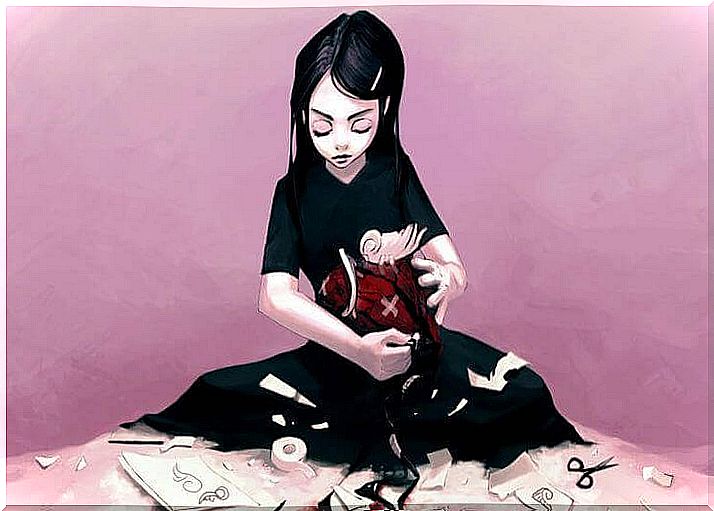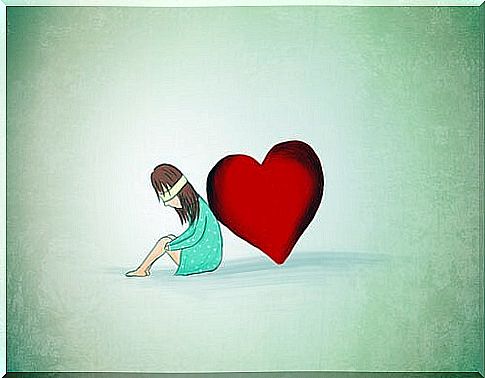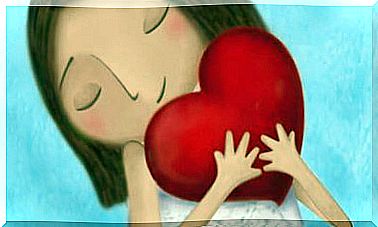Consequences Of Falling Out Of Love: What Happens To The Brain After A Disappointment?

The ruptures leave us empty, desolate, confused. We perceive falling out of love as a part of ourselves has been taken away from us, and in some ways it is just like that. Scientific studies have shown that couples involved in long-lasting stories develop interconnected memories, turning into a system that depends on both members of the couple.
When the relationship ends, this disconnection is experienced in a traumatic way. Kind of like we had one extremity amputated. The body reacts by feeling the need for this acquired addiction, much like the withdrawal syndrome one feels if we are deprived of any substance.
Falling in love with a person is an emotional affective process that has strong repercussions on our brain. For this reason, moreover, at the moment of the breakup of the couple, the effects that are activated within it can be various. During falling out of love, in experiencing emotional pain, the same area of the brain that manages physical pain is activated.
Our brain during falling out of love
Several studies show that the same areas of the brain that are activated when a person falls in love, which generate dependence and anxiety towards the other person, are also activated at the time of the breakup. This means that, beyond the pain of the circumstances, the person can continue to feel dependence on the partner.
The director of the Cognitive Neuroscience Center in Chicago in the United States, John Cacioppo, argues that the need to establish stable emotional bonds is innate in humans. Consequently, the breakup is a complicated moment, as it is difficult to accept that the person in whom we had placed our trust has betrayed us.
The results of other experiments carried out in relation to people who feel depressed by the breakdown of a relationship show that the body, reacting to pain, can secrete the same hormones that are produced in stressful situations; hormones which in turn can affect the regular activity of the digestive system or heart.
Those who have gone through similar situations know how much it can hurt, but they also know that life goes on, that friends, family, their passions and memories will prove useful to overcome the moment. The breaking up process is a bit like falling back in love, but in reverse. The neuronal reactions caused by romantic passion are similar in both cases.

The brain while overcoming a breakup
Several studies have shown that as the romantic relationship develops over time, the idealization of the loved one fades, even if after the breakup it returns more overbearing than ever. The brain’s reward systems during falling out of love are waiting for love gratification, and not getting the proper response, the normal reaction, as with drugs, is to increase the volume of this call.
This brain reward system, clamoring for its fix, is what ultimately leads us to behave impulsively or stupidly after a breakup. When we write goodbye or grief messages to our ex-partner, we are actually driven by the chemical messes of our brain.
In conclusion, a love that ends hurts and involves real physical suffering that can last for months. However, that pain is actually part of the process of healing and overcoming the breakup. Several brain resonances made on people in the falling out of love phase reveal the existence of a special activity in areas of the prefrontal cortex, the area of the brain involved in the expression of personality, in decision-making processes and in the planning of complex cognitive behaviors.

In fact, as we moan and cry, our brain chemistry is already at work to recalibrate our behavior, balance our emotions, and get us moving again.
http: //









